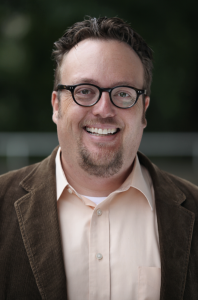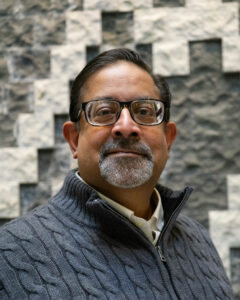(MADISON, Wis.) As U.S. Electoral College voters cast their ballots for president in state capitals today, a new University of Wisconsin-Madison survey report on voters in Midwest battleground states found surprising insights on the partisan divides that shaped voting patterns in critical Midwest battleground states.
The survey showed substantial bipartisan agreement on several controversial topics, including gun purchase background checks, state initiatives (public votes) on constitutional amendments, and independent redistricting commissions that prevent parties from gaining more legislative seats than their vote share allows, plus substantial support for environmental protection and legalizing marijuana in both parties.
The study also found that partisan divides on systemic racism and hostility toward women greatly exceed the differences by race and sex, respectively.
67% of Midwestern Democrats agreed or strongly agreed that “Generations of slavery and discrimination make it difficult for African Americans to advance,” compared with just 11% of Republicans. Independents split the difference at 33%.
On attitudes toward women, the survey assessed views related to what is called hostile sexism – whether they strongly agreed, strongly disagreed, or something in between, that “most women fail to appreciate all that men do for them,” and that “most women interpret innocent remarks or acts as being sexist.”
Midwestern Democratic women scored an average of 27 out of 100 on the scale, while Democratic men had an average score of 37¹. Midwestern Republican women averaged 48 out of 100, while Republican men had an average score of 61.

The 2024 Center for Communication and Civic Renewal Survey interviewed a representative sample of 894 Midwesterners in three electoral battlegrounds – Wisconsin, Michigan, and Minnesota – just before the November election. A team of UW-Madison faculty, grad students, and staff affiliated with the Center for Communication and Civic Renewal (CCCR) developed dozens of questions, led by CCCR’s Faculty Director Dr. Michael Wagner.
Dr. Michael Wagner, who is also the Evjue Distinguished Chair for the Wisconsin Idea in the UW-Madison School of Journalism and Mass Communication, characterized the importance of these findings for understanding the state of democracy in Wisconsin.
“Our Midwestern survey bursts so many bubbles of conventional wisdom about today’s politics. There are a host of issues where deep bipartisan agreement points a path forward for legislative compromise while, at the same time, partisanship — not race or gender — emerged as the central dividing line when it comes to attitudes about the distribution of rights and opportunities in the U.S.,” he said.
The report also reveals new insights on why Midwesterners have been cutting off political talk and even close relationship over politics – a topic the research team has studied for over a decade.
The survey found that 1 in 5 people in these three battleground states have ended a friendship or now spend less time with a family member due to political disagreement, including 27% of Democrats and 11% of Republicans. Among them, 71% of Democrats and 50% of Republicans said the erosion of their relationship was at least partly due to offensive, abusive, or harassing interactions.
The survey also provided insights on news diets and partisan news bubbles. Republicans are far more likely to opt into partisan media news bubbles than Democrats – 20% vs. 2% who only consumed political media from their side.

“Our bi-annual survey again reveals some deep political cleavages and cloistering of communication to avoid hearing the other side, yet also finds many areas of agreement among partisans in the upper Midwest,” said Dr. Dhavan Shah, McLeod Professor of Communication Research and Research Director for the Center for Communication and Civic Renewal at the University of Wisconsin-Madison. “What remains unclear is whether political leaders choose division or compromise.”
The 2024 presidential election was a nail-biter. Neither candidate won a majority of votes, and Trump edged out Harris among voters by just 1.5%. The Electoral College vote came down to the same few battleground states as 2020 and 2016. Wisconsin and Michigan were among them once again, flipping from Democrats to Republicans.
Wisconsin had the narrowest presidential vote margin nationwide (0.9%), and the Badger State split enough of its votes to select both Republican Trump and Democratic Senator Tammy Baldwin by narrow majorities. Michigan Democrats lost control of the state legislature and Trump flipped the state from 2020 while Wisconsin Democrats narrowed the margins of Republican majorities in both state houses. Trump lost Minnesota by four percentage points, but Republicans won a state legislative majority there, making it a battleground state too.
The 2024 Midwest Battlegrounds Election Survey (pre-election wave) was administered online by YouGov from October 17 to November 4, 2024. YouGov supplied a demographically weighted representative opt-in sample of 1,185 adult residents of four Midwestern states: Wisconsin (N=333), Michigan (N=272), Minnesota (N=289), and Iowa (N=291).
Although non-probability samples do not have traditional margins of error, percentages from these three states have a virtual margin of error of +/- 3 percentage points for point estimates near 50%, with smaller margins for estimates as they move toward 0% or 100%. Estimates for Democrats in the two states have margins of error of +/- 5 percentage points, and estimates for Republicans are +/- 6 percentage points.
The research team also fielded a national survey with many of the same questions, and they are fielding post-election surveys for additional insights, all for later reports and scholarly work.
The 2024 Midwest Battlegrounds Election Survey was supported by the John S. and James L. Knight Foundation, which advances research on the intersections of media and democracy.
¹1% of respondents identified as non-binary, which is too few to analyze separately with any precision.
About the Center for Communication & Civic Renewal
The Center for Communication & Civic Renewal (CCCR) is an interdisciplinary research team housed in the School of Journalism & Mass Communication at the University of Wisconsin-Madison. CCCR’s research aims to understand Wisconsin public opinion and the state’s broad political communication ecology, drawing upon frameworks and methods foundations in communication, political science, sociology, psychology, and computer science. Dr. Michael Wagner leads the Center as Faculty Director, Dr. Dhavan Shah is the Center’s Research Director, and Dr. Nathan Kalmoe serves as Executive Administrative Director for the Center.
The Center’s public opinion polling is one of three analytical components in its broader efforts studying political communication in Wisconsin, the Midwest, and beyond. Over the years, we have also conducted in-depth interviews with hundreds of citizens throughout the state to understand how they’re talking and thinking about politics. And we have conducted large-scale computational analyses of social media and news media content throughout the Wisconsin, the United Stares, and the world.
CCCR’s past research is synthesized in the book, Battleground: Asymmetric Communication Ecologies and the Erosion of Civil Society in Wisconsin, published by Cambridge University Press in 2022, along with several peer-reviewed articles published in academic journals, and public-facing essays published in national news outlets including the Washington Post, Vox, and TechStream as well as local outlets like the Milwaukee Journal Sentinel, the Capital Times, and the Wisconsin State Journal
Our March 2023 report, “Civic Fracture & Renewal in Wisconsin,” assessed the public’s civic attitudes and behaviors and found worrisome signs of social and political conflict in 2022 Wisconsin and U.S. midterm election survey comparisons. These included ending relationships over politics, safety fears in politics, and views supporting for political violence among a minority of citizens – but we also identified vital agreement across divides in ways that may help repair American democracy.